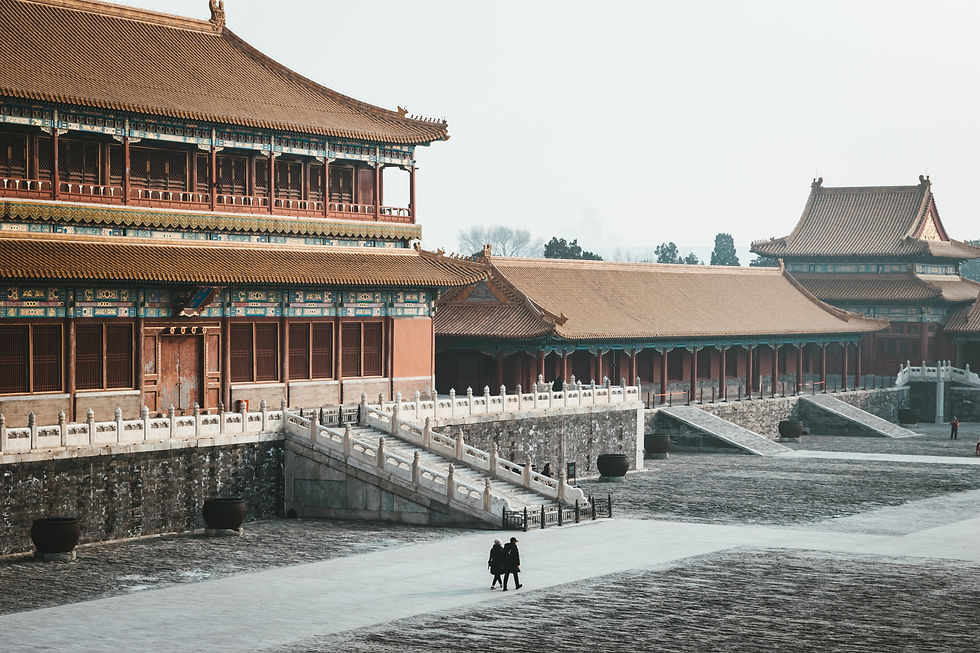The True Cost of Financial Freedom: Philosophical Insights into Achieving True Wealth
- Tim Gratis
- Aug 30, 2023
- 3 min read

Pursuing wealth, particularly financial freedom, is a formidable pillar in the vast expanse of human endeavors. Financial freedom appears to be a straightforward concept: attaining enough monetary resources to liberate oneself from the necessity of active work. But dig deeper, and you'll uncover layers of philosophical intricacies that render the journey more profound. To understand the actual cost of financial freedom, one must consider tangible assets and monetary figures and the intangible values, sacrifices, and mindset shifts required to reach this coveted state.
Financial Freedom: Beyond Monetary Metrics
Financial freedom is more than amassing a specific amount in a bank account or achieving a hefty investment portfolio. It's about creating a life where money, while essential, does not dominate one's choices. It's the ability to live genuinely, with decisions guided by passion, values, and intrinsic desires rather than fiscal constraints.
The Philosophical Foundations of Wealth
a) The Stoic Perspective: Stoicism teaches contentment, urging individuals to differentiate between things within their control and those outside it. Regarding financial freedom, stoicism nudges us toward simplicity, frugality, and an understanding that the endless chase for more can hinder true contentment.
b) Existentialist Insights: Existentialism emphasizes individual freedom, authenticity, and responsibility. It encourages individuals to create meaning and essence, even in wealth creation. From an existentialist standpoint, financial freedom means pursuing economic avenues that resonate with one's authentic self, devoid of societal pressures.
c) Buddhist Philosophy: Central to Buddhism is the idea of impermanence and the dangers of attachment. Translating this to the realm of finances reminds us that material wealth is transient. True wealth is internal peace, contentment, and detachment from material desires.
The Price Tags of Financial Freedom
Achieving financial freedom comes with its costs, both tangible and intangible:
a) Sacrifice: The path to financial independence often requires preceding immediate pleasures for long-term gains. This might mean fewer indulgences, opting for modest living, or investing time in learning and upskilling.
b) Time: Wealth, especially of the passive kind, appears over time. It demands patience, consistent effort, and the wisdom to understand that time, when leveraged correctly, can be one's most potent ally.
c) Mental Resilience: The journey will be fraught with uncertainties, economic downturns, and potential failures. Cultivating a resilient mindset that can weather storms and remain focused becomes paramount.
Rethinking the Notions of Wealth
a) Wealth as Time: One of the most profound realizations on the path to financial freedom is understanding that the real luxury is time. True wealth grants individuals the freedom to spend their days as they genuinely desire.
b) Wealth as Freedom from Societal Constructs: Financial independence allows for a life outside the prescribed societal norms. It offers liberation from the 9-to-5 grind, creating room for entrepreneurial ventures, passions, and pursuits that mainstream society might deem unconventional.
c) Wealth as Personal Growth: The journey to financial freedom is inherently tied to personal development. It fosters qualities like discipline, foresight, patience, and resilience.
The Paradoxes of Financial Freedom
a) The More You Have, The More You Want: As individuals amass wealth, they're often introduced to new desires. It's crucial to differentiate between needs and wants and understand when enough is enough.
b) Freedom Can Be Binding: Paradoxically, pursuing financial freedom can become an obsession, chaining individuals to the things they're trying to escape from money. True freedom lies in balance and detachment.
c) Simplifying Can Be Complex: As individuals seek to simplify their lives and finances, they may encounter complexities – tax structures, investment portfolios, and the like. Embracing both the simplicity and the complexity is crucial.
In Conclusion
The road to financial freedom, while paved with fiscal strategies and monetary milestones, is deeply philosophical. It asks individuals to reflect upon their values, desires, and the essence of what they consider a well-lived life.
Achieving financial freedom comes with its costs, but the rewards, when viewed holistically, transcend bank balances. It offers the luxury of time, the joy of genuine experiences, the serenity of contentment, and the growth derived from introspection and resilience.
To understand the actual cost of financial freedom, one must not merely tally assets and liabilities but reflect upon the sacrifices, lessons learned, and personal transformations. Only then can one truly grasp this journey's profound value and revel in its natural wealth.







Commentaires